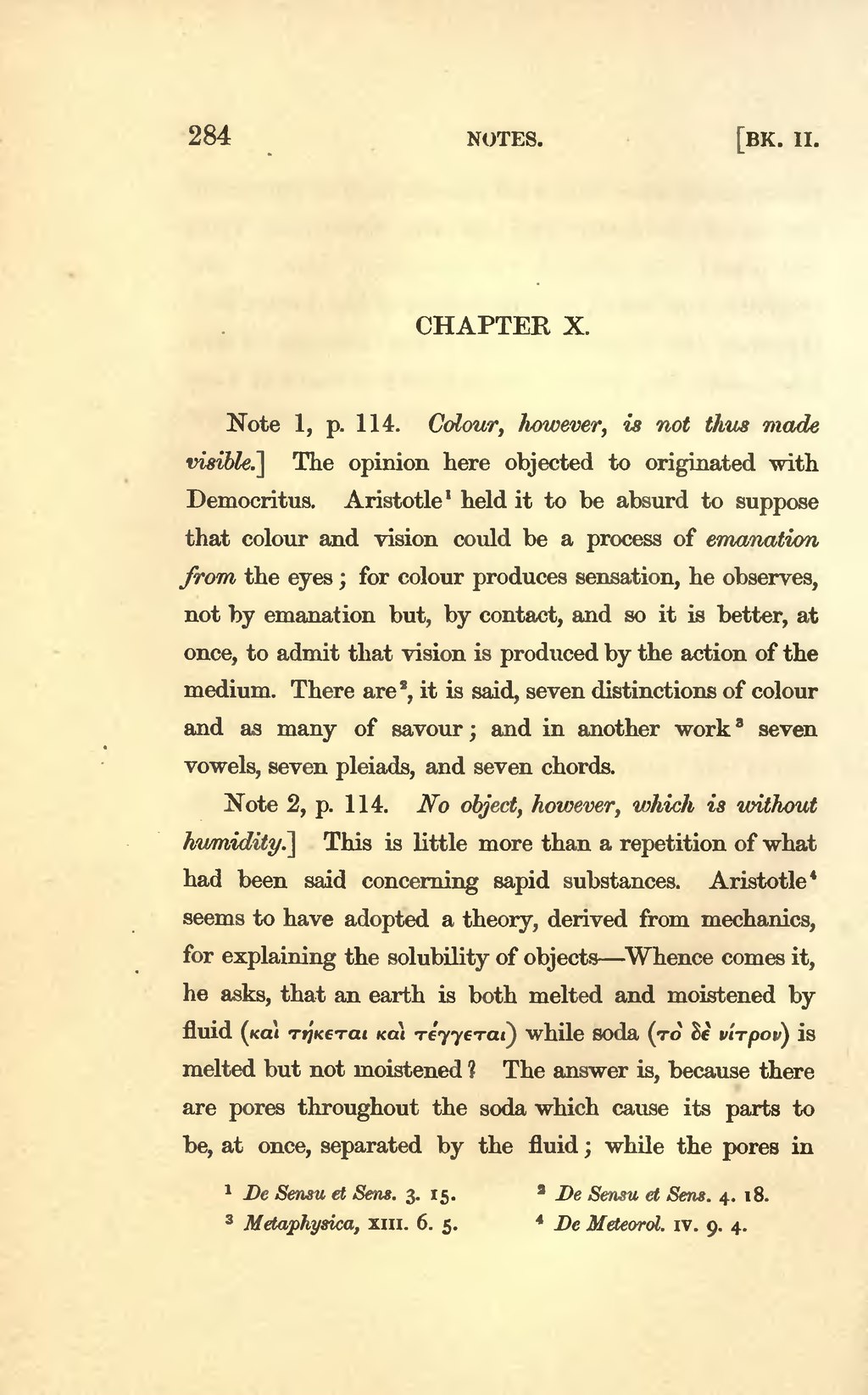CHAPTER X.
Note 1, p. 114. Colour, however, is not thus made visible.] The opinion here objected to originated with Democritus. Aristotle[1] held it to be absurd to suppose that colour and vision could be a process of emanation from the eyes; for colour produces sensation, he observes, not by emanation but, by contact, and so it is better, at once, to admit that vision is produced by the action of the medium. There are[2], it is said, seven distinctions of colour and as many of savour; and in another work[3] seven vowels, seven pleiads, and seven chords.
Note 2, p. 114. No object, however, which is without humidity.] This is little more than a repetition of what had been said concerning sapid substances. Aristotle[4] seems to have adopted a theory, derived from mechanics, for explaining the solubility of objects--Whence comes it, he asks, that an earth is both melted and moistened by fluid (καὶ τήκεται καὶ τέγγεται) while soda (τὸ δὲ νίτρον) is melted but not moistened? The answer is, because there are pores throughout the soda which cause its parts to be, at once, separated by the fluid; while the pores in
